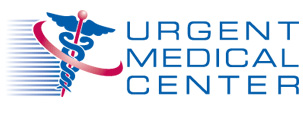Do You Have Mono? Causes, Symptoms, and Treatments For Mononucleosis
Feeling unexplainably achy or tired? Do you think mono might be the cause of your ongoing ill feelings? Epstein-Barr (EBV), a herpes virus, causes mononucleosis, commonly known as mono. Officially discovered back in the 1960’s, Mono is an extremely common virus that has invaded 95% of adults  aged 35 to 40 years old. Long before the 1960’s, the mono virus was busy infecting people; as far back as the 1800’s there are records of doctors’ awareness of mono, although they called the virus “glandular fever” or “Drusenfieber.” In the 1960’s, when a connection between this common flu-like illness and the EBV virus was made, Mono received its official modern-day diagnoses. Learn More If you have been diagnosed, the symptoms of mono may linger for weeks or even months. Mono will make you feel very weak and tired no matter how much sleep you get. Many people mistake this sickness for a common cold or flu because the symptoms of mono are so similar. Yet when their symptoms persist, it becomes clear something else is wrong. While some people experience mild cases of mono, where they only feel slightly sick, others become much more ill.
aged 35 to 40 years old. Long before the 1960’s, the mono virus was busy infecting people; as far back as the 1800’s there are records of doctors’ awareness of mono, although they called the virus “glandular fever” or “Drusenfieber.” In the 1960’s, when a connection between this common flu-like illness and the EBV virus was made, Mono received its official modern-day diagnoses. Learn More If you have been diagnosed, the symptoms of mono may linger for weeks or even months. Mono will make you feel very weak and tired no matter how much sleep you get. Many people mistake this sickness for a common cold or flu because the symptoms of mono are so similar. Yet when their symptoms persist, it becomes clear something else is wrong. While some people experience mild cases of mono, where they only feel slightly sick, others become much more ill.
How Do You Get Mono?
Many people know mono as the “kissing disease” because the virus is carried in the saliva, and is easily transmitted from person to person through kissing. Although there are many ways to spread mono besides locking lips, mono may also spread through drinking glasses, chap sticks, or eating utensils. Not only does the virus live in saliva but also it is present in nose mucus, throat mucus, and sometimes even in tears.
Mono can be in your system for over a month (4-6 weeks to be exact) before symptoms of mono start to kick in. This causes a delay in diagnoses, and makes finding an exact source of the virus even trickier. Teens and young adults are most likely to get mono, older populations are usually already immune to this fairly common virus, and children can get mono but their symptoms are typically slight and often go unnoticed. Discover More on Mononucleosis
Symptoms of Mono
Mono initially attacks the neck and throat lymph nodes, thus a sore throat, swollen lymph nodes, and fever are common first symptoms associated with mono. While these conditions typically dissipate within 2 weeks, the virus still lingers strong in your body causing other symptoms to persist. Mono attacks the white blood cells created in the lymph nodes, causing them to change, multiply, and basically malfunction. It can take a while for enough mutated white blood cells to multiply before your body presents the symptoms of mono; this is why it can take weeks after contact to discover you are infected.
The most common symptoms of mono include:
- Long-lasting fatigue or weakness
- A high fever—often accompanied by the chills
- Vomiting
- Swollen glands
- Sore throat and tonsils
- An overall ill feeling that won’t go away
- A loss of appetite
- Achy or stiff muscles
- A persistent rash
Less common symptoms of mono include:
- Light sensitivity
- Racing pulse
- Jaundice
- Nosebleeds
- Headache
- Chest pain
- Coughing
Since the spleen is responsible for filtering toxins out of our blood, including bacteria and viruses, some people also experience swelling of the spleen. In serious cases this inflammation can lead to your spleen erupting. If extreme pain strikes near the upper left portion of your stomach, visit a doctor immediately.
Mono Treatment Options
There are a number of tests a doctor can perform to accurately tell if you have mono or not. A blood test can tell your doctor if your white blood cell count reads normal or not, a Monospot test tells if your body has the Epstein Barr virus present, and an Antibody Titer test can determine if you are a carrier of the virus due to a past infection, or if you are currently infected with the virus for the first time. Once you have been diagnosed with mono, treatment usually takes place at home. In some patients mono causes the development of strep throat (streptococcal infection), which requires prescription of an antibiotic medication in order to treat.
If you have mono you will want to lay-low for a while. Bed rest is often necessary, and you might need to miss some school or work. Playing sports or lifting heavy things is not recommended, since mono causes inflammation, heavy lifting can increase the risk of your spleen rupturing. For severe swelling related to mono, a doctor may prescribe corticosteroids. For most cases, over the counter medications such as Aspirin, Tylenol, or throat lozenges will help alleviate symptoms of mono. Once the mono virus leaves your body, you should have no residual effects. Except, from time to time the virus can reactivate in your body without presenting any side effects. When it is reactivated the virus is contagious to others who have not been infected with mono already.




